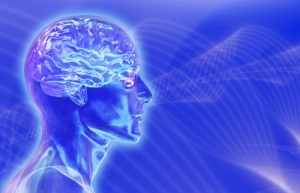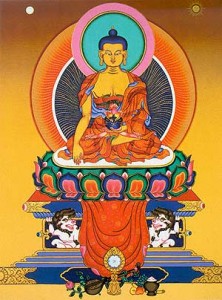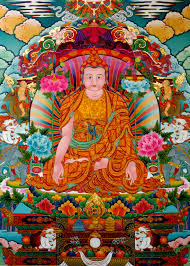The following is an excerpt from a teaching by Jetsunma Ahkon Lhamo called “Mindfulness of Cyclic Existence”
As a Westerner, in a subtle and also in an overt way, we have a certain attitude that we should present ourselves in a certain way. In our culture, it is considered to be an excellent indication of our status, our development and our maturity, if we have a noble, very obvious and very positive sense of hope. This is normal for us. We must have a good attitude about things. We must think positively or seem to be positive.. We must think with a “can do” attitude. That’s a big thing in America. We really think like that. All our movies glorify that attitude. If you don’t believe me, check out some movies from the video store. I can probably give you some titles. Go home and look at the movies that really honor the American “can do” ideal. We have very strongly in our minds and in our culture this idea of positive-ness, that we can do what we want to do, that we should hold to certain ideals in a very enduring way, and that we should just go onward up the hill—Charge!—that kind of thing. We may not realize it, but this particular and peculiar American ideal,is very wrapped up in the concept of hope and fear.
According to Buddhist tradition, not only is this not advisable, but it also creates a certain instability to the mind. In fact, where we consider it an admirable quality, in Buddhist philosophy it is considered a symptom of imbalance, a symptom of a lack of the realization of the primordial wisdom state, a symptom, in fact, of the lack of the realization of the emptiness or the illusory quality of all phenomena.
In Buddhist philosophy we are cautioned not to engage in the two extremes of hope and fear. We are taught that hope and fear are essentially the same. In the same way that the balancing parts of a scale are part of the same apparatus, or in the same way that both sides of the coin are essentially the same coin, hope and fear are exactly the same and are based on several presuppositions. First of all, they are based on the solidity or reality of self-nature as we understand it with all of its ramifications and conceptualizations. They are also based on the belief in the solidity and reality of all phenomena, and in the belief in the separation of all phenomena. They are based on dividing all that you see—self is here and phenomena are there—the belief in separation. They are also symptomatic of the tendency to consider that happiness can be won or gotten by running after it, that happiness is an external phenomenon. We feel inside that happiness is out there. That it’s something that we can go towards, something we can grasp; or that there is something that we can manipulate to get happy.
According to Buddhist philosophy, all of these concepts are erroneous. Basically, the Buddhists teach that true enlightenment, or true realization, occurs when one realizes the primordial wisdom state. The primordial wisdom state is actually considered to be free of conceptualization of any kind. It is a state that is innately wakeful. It is wakeful, and yet it is not aware of some “thing”. So it is, if we can imagine such a thing, aware but not specifically aware. It is simply awake.
Buddhist philosophy also teaches in terms of realizing the emptiness of self-nature. Now, that sounds really strange. Every time Americans, as a materialistic society, hear “emptiness,” we get extremely nervous, because we don’t understand what that means. The emptiness of self-nature actually means that one doesn’t perceive self according to the concepts that are popular. In other words, one might perceive the primordial wisdom nature, one’s own true nature, or one might perceive self as being separate from others. In truth, the only way one can describe self is as being separate from something else, but self does not exist in that way. What Buddhist philosophy denies, or pushes aside, is the idea that self-nature exists according to the concepts that we put upon it. It does not deny pure perception. It does not deny the perception of the true nature that is one’s inherent reality. But it does deny the concepts that surround the idea of self.
Copyright © Jetsunma Ahkon Lhamo. All rights reserved





